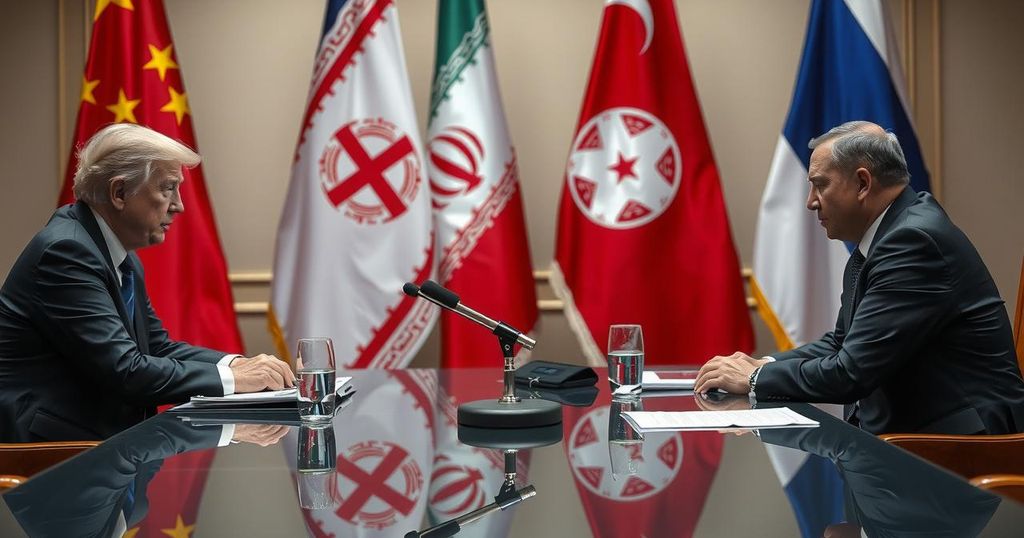Biden’s National Security Memo Aims to Guide Incoming Administration on Key Adversaries

President Joe Biden has approved a national security memorandum to guide the incoming administration in countering the rising cooperation among China, Iran, North Korea, and Russia. The classified document offers four key recommendations aimed at enhancing U.S. strategic response to these nations, reflecting the complexities of the current geopolitical landscape and the challenges it poses to U.S. foreign policy.
President Joe Biden has approved a national security memorandum aimed at countering the rising collaboration among China, Iran, North Korea, and Russia, in anticipation of Donald Trump’s return to the White House. Crafted over the summer by Biden administration officials, the classified document is designed to guide the incoming administration from its first day in addressing the challenges posed by these adversarial relationships. Consisting of four main recommendations, the memorandum advocates for enhanced interagency cooperation within the U.S. government, expedited sharing of intelligence with allies, strategic use of economic sanctions, and enhanced preparedness for concurrent crises involving these nations.
The memorandum emerges amid heightened concerns regarding the increasing cohesion among these four nations, notably following the onset of the Ukraine conflict in 2022. Russia’s isolation has driven it to deepen ties with Iran for military supplies, while North Korea has provided Russia with artillery and troops. Concurrently, China has been a crucial supporter of Russia, aiding its military capabilities, while Russia extends military and technological assistance to Iran and North Korea. Notably, the evolving dynamics illustrate a multifaceted relationship where benefits and military cooperation are exchanged among these countries.
The Biden administration’s memo reflects a stark contrast between Biden’s and Trump’s foreign policy perspectives, yet both administrations have sought collaboration on national security matters during the transitional phase. Officials emphasized that the goal of the memorandum is not to constrain the Trump administration but to provide foundational guidance as it navigates complex foreign policy challenges related to these adversaries. Ultimately, the document aspires to bolster U.S. capacity and readiness in the face of multifarious threats on the global stage.
This article discusses the recent national security memorandum approved by President Biden ahead of former President Trump’s anticipated return to office. The increasing cooperation among adversaries such as China, Iran, North Korea, and Russia presents significant security challenges to U.S. foreign policy. The context includes recent events, particularly the shifting alliances following Russia’s invasion of Ukraine, which have further complicated the geopolitical landscape. This memorandum aims to assist the next administration in facing these evolving threats effectively and strategically.
The approval of the national security memorandum by President Biden underscores the administration’s proactive approach to address the growing alliances among key adversaries, including China, Iran, North Korea, and Russia. Through four strategic recommendations, the document is intended to equip the next administration, regardless of party affiliation, with the necessary insights and tools to tackle complex foreign policy challenges. This effort underscores the importance of continuity and coordination in U.S. national security policy.
Original Source: www.voanews.com








